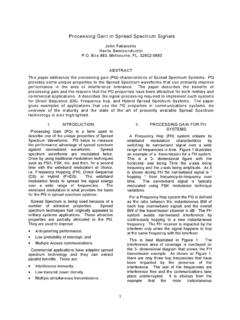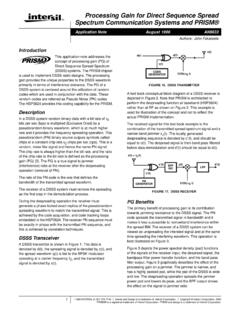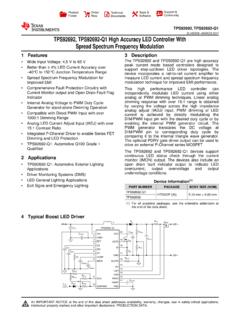Transcription of ESBL Extended Spectrum Beta Lactamase)
1 Patient & Visitor Fact Sheet ESBL. ( Extended Spectrum Beta Lactamase). WHAT IS ESBL? ESBL's are enzymes that may be produced by some bacteria that are usually found in the bowel and urinary tract, such as Ecoli. The bacteria can also infect or colonise other sites of the body lungs and sputum. ESBL's are considered multi-resistant organisms (MRO) due to the large number of antibiotics the bacteria are resistant to. It is therefore important to control the spread of ESBL's to ensure that the bacteria will still respond to commonly used antibiotics.
2 HOW DID I ACQUIRE IT? The bacteria are usually COLONISED' in patients and are often found in the bowel without causing any signs of infection. However, if ESBL's have the opportunity to be transferred to wounds or urine they can cause local infection, or even a systemic infection of the blood such as septicaemia. WHAT IS COLONISATION? Many bacteria can live on or in the body without causing disease or illness. This is called colonisation'. People can be colonised for very long periods of time, sometimes years, which is why when patient's return to hospital, special infection control precautions are taken to ensure the patient does not develop an infection from the colonisation.
3 Colonisation with ESBL does not usually require treatment. WHAT IS INFECTION? When bacteria cause disease or illness this is called infection. When the infection is caused by an ESBL, your doctor will identify which species of ESBL you have and then commence treatment with the appropriate antibiotics. WHO IS AT RISK FROM ESBL INFECTIONS? ESBL infections can occur in people who are Elderly especially from nursing homes. Have a low immunity Have broken skin from wounds Have undergone recent Surgery Have indwelling devices such as urinary catheters, intravenous lines (drips), and feeding tubes Emergency intra-abdominal surgery Have a prolonged ICU or hospital stay Have received frequent and / or long term antibiotics.
4 Suffer from chronic urinary tract infections / cystitis HOW CAN ESBL's BE SPREAD? ESBL is spread through contact with the bacteria. This may be from direct contact with a colonised or infected person or by indirect contact with a contaminated surface such as hospital equipment, bed and bedding or furniture. To prevent the spread of ESBL to other sick patients in the hospital the nursing staff will care for you using special infection control precautions. HOW WILL MY CARE CHANGE WHILST IN HOSPITAL? You will be managed using special infection control precautions until you are discharged.
5 A sign is placed outside your door to alert hospital staff for the need to use special protective infection control precautions. This sign also alerts visitors of the need to speak with nursing staff prior to entering your room. The hospital staff will wear protective clothing such as gloves and an apron or gown when they enter your room. If the ESBL has been found in your sputum the staff may also need to wear a mask. These items are disposed of in a separate waste bin as the staff member leaves your room. Editor: Jayne O'Connor. Jan 2014 revised following comment.
6 Infection Prevention & Control department, Adventist healthcare Ltd. This information leaflet provides basic information only and is to be as a guide, not as a complete resource on the subject You will be allocated a private room with your own en suite facilities. We ask that your movement throughout the ward is limited to essential movement only, such as physiotherapy. If you are unsure about when you can leave your room, please speak to the nursing staff. You may be asked to wash or shower with a special soap during your hospital stay; the nursing staff will provide this.
7 It is no longer necessary for you to use this soap once you have gone home. GOOD HAND HYGIENE PRACTICES. Hand Hygiene is the most effective way to prevent ALL infections, including the flu and the common cold. Encourage your family and friends to maintain good hand hygiene practices every day. Please refer to the hand hygiene information in the patient information booklet or hand hygiene leaflet available from the Infection prevention and control team. Alternative - Alcohol based hand rub / gel. During your stay in hospital you may have seen the staff using an alcohol-based hand rub, as an alternative to soap and water.
8 Alcohol-based hand rubs or gels can be used for hand hygiene as long as your hands are not visibly soiled / dirty. There are a variety of brands on the market and are available for purchase at most pharmacies. You may choose to use this type of product at home. CAN I STILL HAVE VISITORS? Yes you can still have visitors. In general, exposure to ESBL does not cause infection in healthy people; this includes pregnant women, babies and children. Casual contact such as hugging and kissing is OK. Being diagnosed with ESBL does not prevent you from continuing sexual relations with your partner, unless otherwise advised by your doctor.
9 If a friend or relative has had recent surgery, has an illness or has a compromised immune system they may wish to contact the Infection Control staff or speak with their GP for further advice. To prevent the spread of ESBL the nursing staff will provide education to your visitors about the need to perform hand hygiene before and after they enter your room. We ask that you also encourage your visitors to do this. They can use both soap and water at the wall sink in the ward, or the alcohol hand rub provided outside your room. WHAT HAPPENS WHEN I GO HOME?
10 When you return home it is important for you, your family and your friends to continue the good hand hygiene practices that you have been taught in hospital. There are no special precautions required for the washing of clothes, linen, crockery and cutlery or for the cleaning of the bath, toilet and shower. It is important that you always tell your doctor, nurse, paramedic, or other health care provider that you have previously had ESBL. This will help to prevent the future spread of ESBL. WHERE CAN I GET FURTHER INFORMATION? You can talk to your doctor or the nursing staff.







